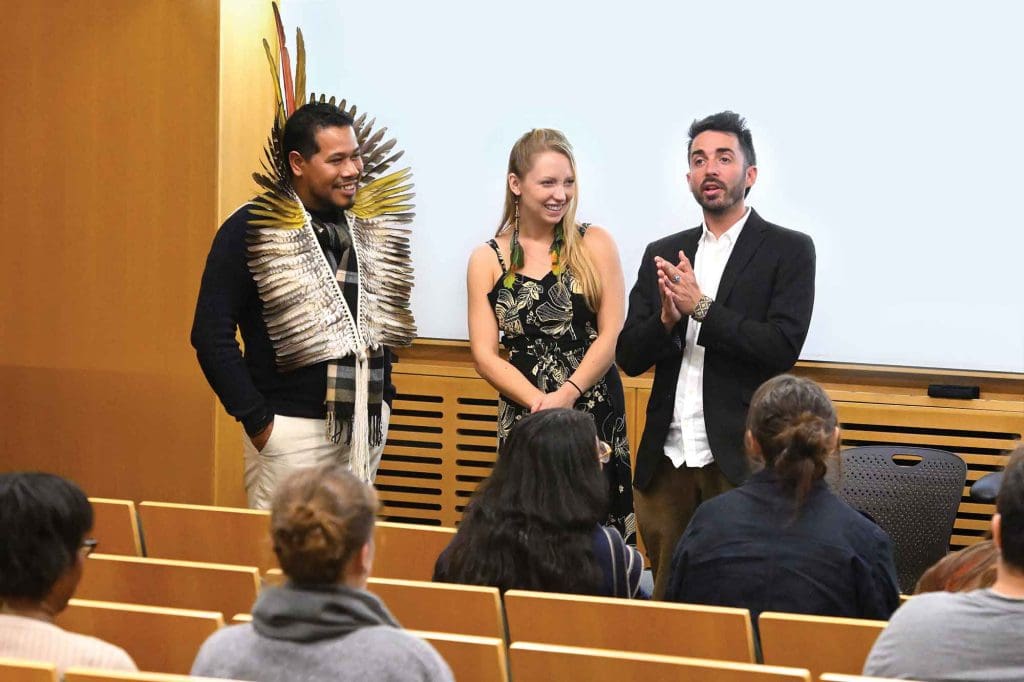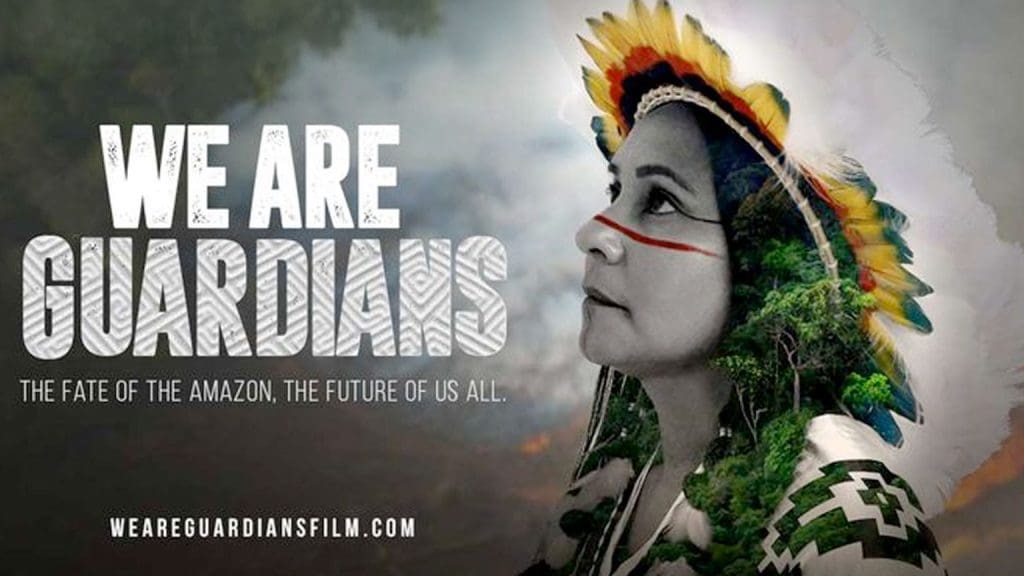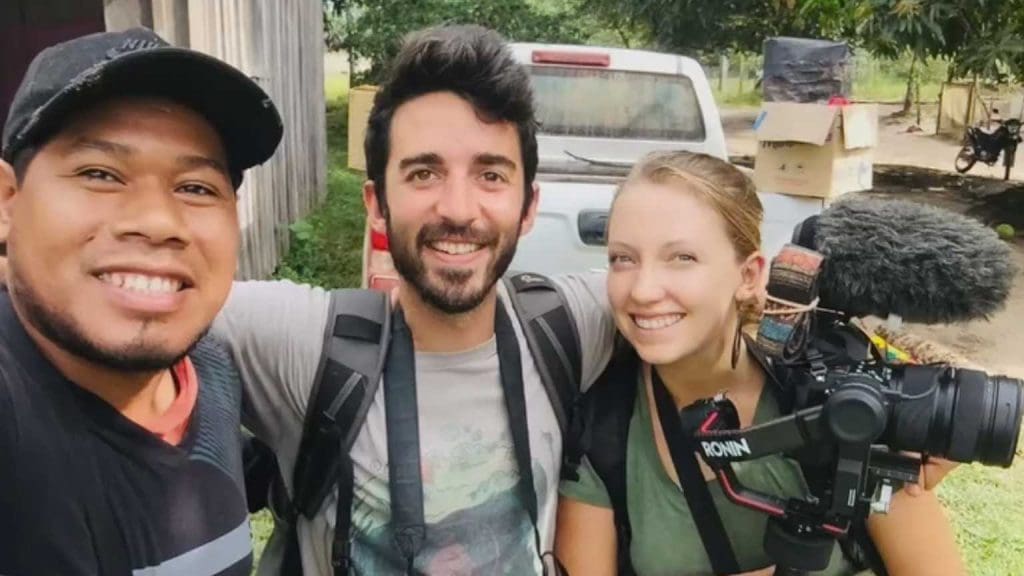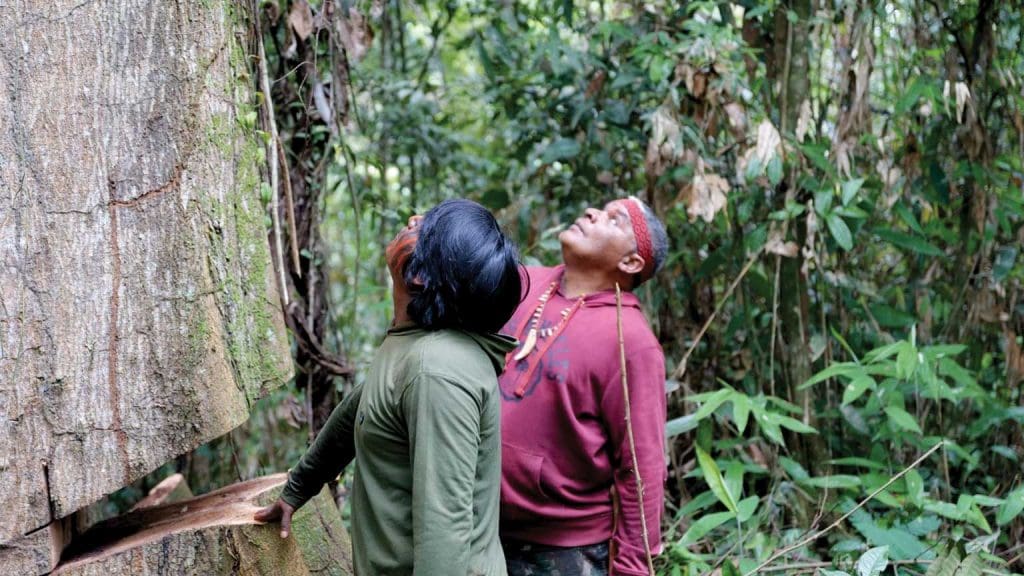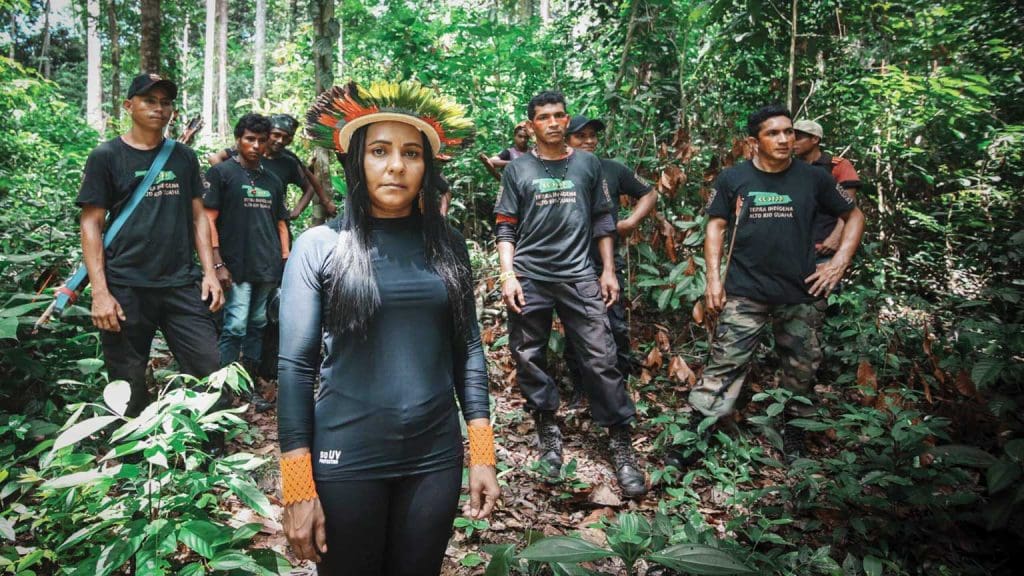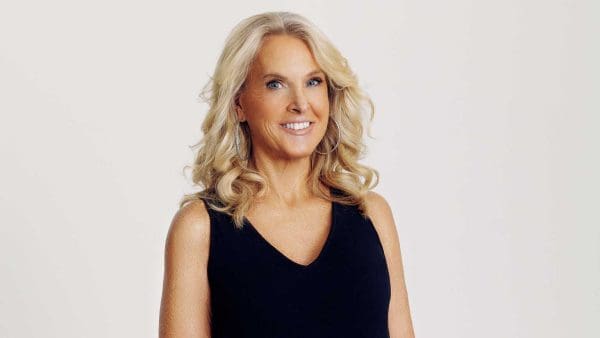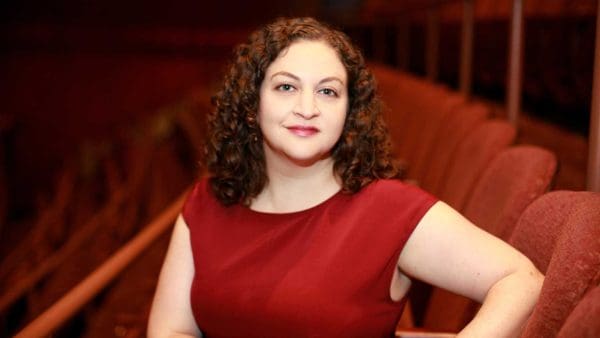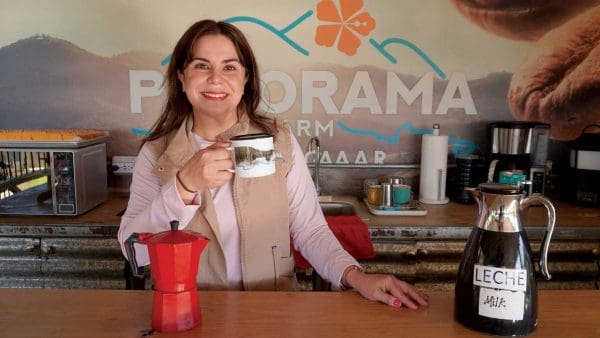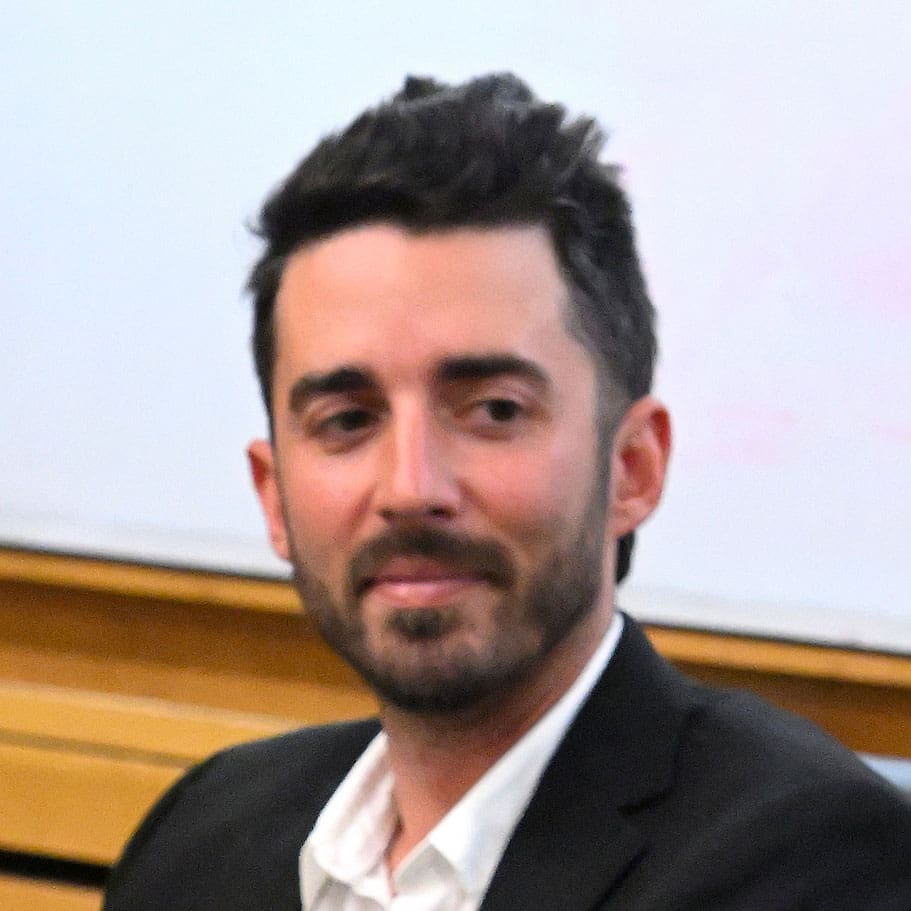
Rob Grobman ’11 has a tendency to name-drop, but not in the usual way.
When asked about We Are Guardians, the documentary he co-directed, Grobman doesn’t mention that well-known actor and director Fisher Stevens produced the movie, or that Leonardo DiCaprio is its executive producer.
Instead, he gushes about his fellow directors, Vermont-based filmmaker Chelsea Greene and Brazilian Indigenous activist Edivan Guajajara, and he sings the praises of the Indigenous people portrayed in this moving and infuriating look at a vanishing Amazon.
“These deep collaborations and friendships have made my life rich,” he says. “I wouldn’t trade that for anything, not even a giant Hollywood film.”
A wide view of the issues
In just 83 lushly filmed minutes, We Are Guardians zooms in on communities fighting to save their land and way of life in Brazil. And it zooms out to show the political and economic forces that allow individuals and companies to brazenly take over swaths of the rainforest and bulldoze it for their own profit.
The documentary is now available on Netflix in Latin America and Brazil, and will be in select U.S. theaters starting in May, as well as on demand through Amazon and Apple.
Grobman, who grew up in New Hampshire, says he first got interested in movies at age 6, when his dad introduced him to Star Wars.
“I remember being absolutely transformed by the magic of film,” he says.
At Krieger, he started in The Writing Seminars, then switched his major to film and media studies.
“It was a small program, so we got a lot of attention and first-hand experience,” he says. Senior lecturer John Mann, he says, introduced him to the idea that documentaries are “less about conveying information and more about inspiring in an emotional way.”
Major connections
Another lecturer at the time, Matthew Porterfield, introduced Grobman in 2011 to film and music video producer Michael H. Shamberg. They worked together on several projects until Shamberg died of a neurological disease in 2014. As Grobman helped Shamberg finish a short film about his life and travels, he decided he wanted to “make stuff that has purpose and meaning.”
In 2019, he learned of devastating fires in the Amazon, set by people who were illegally clearing federally protected land for their own purposes. “I felt a deep calling to find some way to support and help,” he says.
He and a friend traveled to Brazil for five weeks of filming, getting to know the people and issues at stake.
While there, they learned that another American, Greene, was doing similar work. “We realized we had complementary footage and parallel goals, so we combined our efforts,” he says. “The project got rocket fuel at that point.”
Keeping the fight alive
The momentum multiplied after they connected with Stevens, the prolific actor, producer, director, and environmental activist. With Stevens attached, Grobman and Greene were able to attract more funding and traveled back to Brazil three more times for a total of 14 months to film. Early on, they met Guajajara.
As a creator and co-founder of Mídia Indígena, a community of Indigenous storytellers, Guajajara’s “reputation preceded him,” says Grobman. “There was an immediate friendship and connection.” The three traveled and camped together, often with just a translator and a sound engineer, filming with compact cameras.
Toward the end of the project, DiCaprio, a friend of Stevens’ and fellow environmentalist, joined as executive producer. “We’re very grateful he’s helping get the word out,” says Grobman.
Though the film is complete, “the fight is very much alive,” he says. “Indigenous communities are deeply in this fight, watching their forests being invaded and destroyed.”

